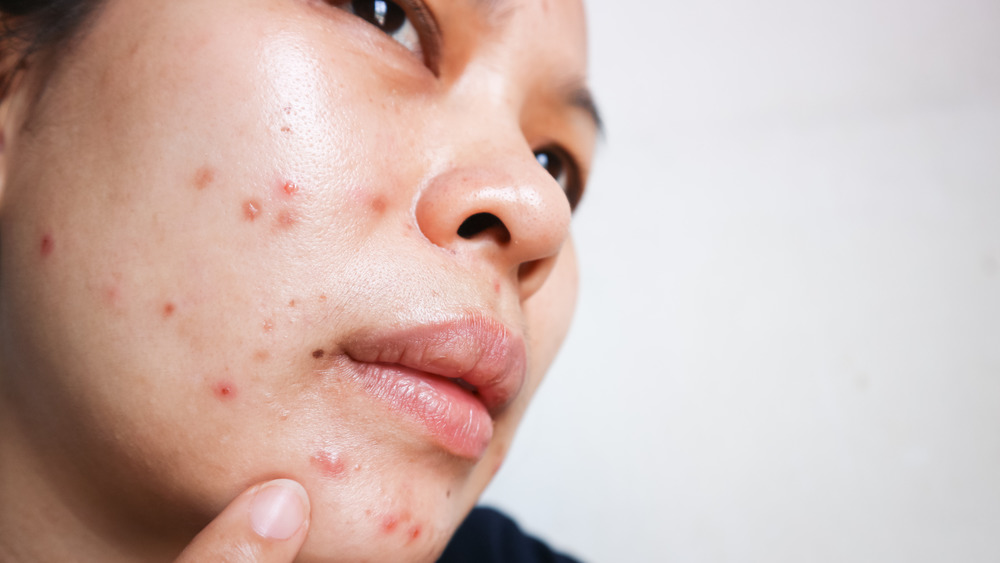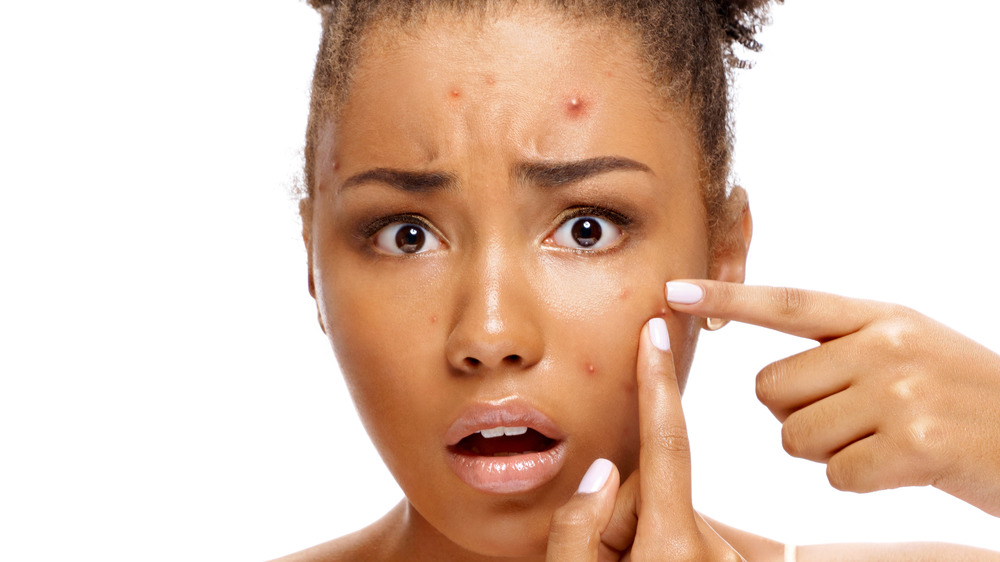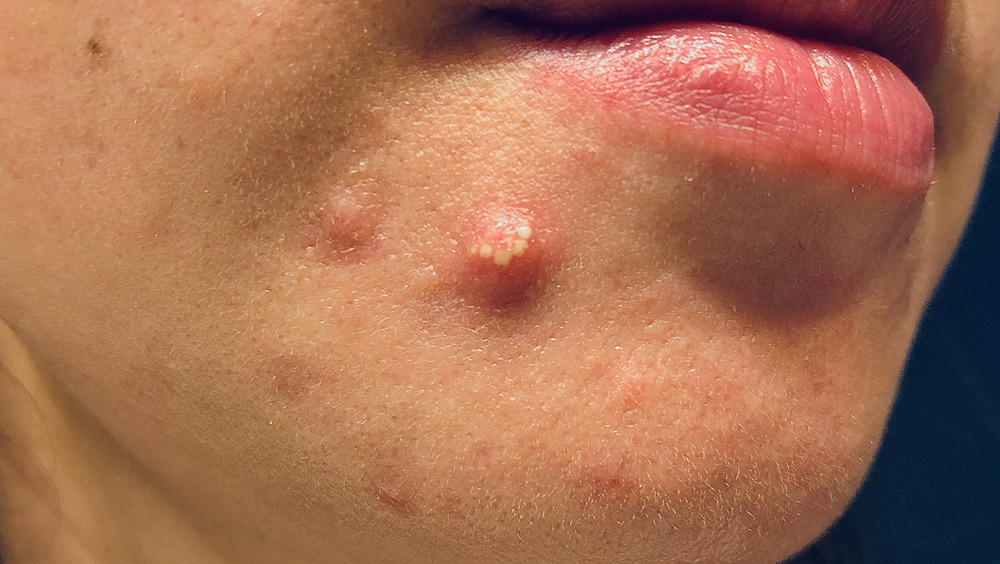Doctor Explains The Treatment You Should Really Be Using For Your Acne
Acne. Many of us know — and hate —this pesky skin condition. Perhaps you have tried many different treatments to help you deal with acne. But are you using the right one? Nancy Shannon, MD PhD, Senior Medical Advisor at Nurx, talked to The List to share which treatments work most effectively for mild, moderate, and truly stubborn acne.
"We treat acne with medications that target the underlying causes of acne — clogged pores and the inflammation that results in breakouts," she explained, adding that treatments fall into two main categories — "those that unclog the pores — keratolytics — and those that treat the inflammation and kill bacteria — antimicrobial."
Dr. Shannon notes that for people who suffer from mild acne, it's okay to stick with topical treatments. "Topical means you put them on your skin," she explained. "First a patient should try over-the-counter products, like a benzoyl peroxide cleanser and a keratolytic, such as a topical retinoid, salicylic acid, or glycolic acid. Benzoyl peroxide is antimicrobial and anti-inflammatory, and the keratolytics unclog pores."
But what if that's not enough to clear up your skin?
What treatments work best for moderate acne
When over-the-counter acne treatments do not do the trick, Dr. Shannon says, "We usually recommend using a prescription-strength retinoid like tretinoin and/or a prescription gel, containing both antibiotics and benzoyl peroxide." As she notes, "Retinoid creams speed up skin cell turnover to prevent dead skin cells from getting trapped in sebum and clogging pores." This is very effective, but as Dr. Shannon notes, retinoids "can be drying, so it is important to use a non-comedogenic moisturizer to manage dry skin when using a retinoid."
Meanwhile, when moderate acne strikes, which Dr. Shannon describes as "pimples and pustules that can result in scarring and discoloration," an oral medication may be indicated. "We usually recommend oral medication, to work from the inside out to calm the inflammation, as well as one or more prescription topical medications."
She elaborates, "An oral antibiotic taken daily will prevent bacteria from taking hold on the skin and creating pimples. Together with a topical retinoid, this can be very effective." And don't worry — this isn't a forever prescription, with Dr. Shannon telling The List, "Most of the time the pimples clear up over several weeks and the oral antibiotic can be stopped. The topical treatments are continued to keep the pimples from coming back."
What treatments work best for hormonal and severe acne
If you are someone who suffers from hormonal acne flare-ups, you aren't alone, with Dr. Shannon explaining, "Many women experience hormonal acne, which appears in a 'beard' distribution on the cheeks, jawline, chin, and neck, and flares in relation to the menstrual cycle." Sound like you? She shares that "Combination birth control pills can be very effective at reducing hormonal acne, because they reduce the big hormone shifts of the menstrual cycle."
Dr. Shannon further notes, "In addition, the estrogen component of a combined birth control pill helps to reduce testosterone levels in the body, leading to reduced sebum production. Less sebum means less likelihood of clogged pores, and less acne."
If you suffer from severe, stubborn acne and the treatments described here have not worked for you, or, as Dr. Shannon says, if your acne is "cystic and scarring," you may want to consider Accutane. "This is an oral retinoid — a pill version of topical retinoids — that reduces sebum production by shrinking the oil glands, making the skin surface cells turnover more, and making the area around the hair follicle less favorable for bacterial growth." Users will notice that Accutane also "has an anti-inflammatory effect."


